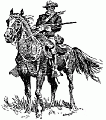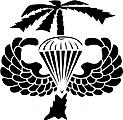Several book, articles, and even military strategists suggest that Psychological Operations are paramount in counterinsurgency. As a PSYOP Officer, of course I am biased, but I have to hypothesize that the mastery of information operations and the ability to influence through words, ideas, and actions is a key element that Brigade and below tactical commanders have to be exposed to.
I wonder though if this (for all intensive purposes element of combat power) is not paid enough heed. Why are future Company Commanders not truly exposed to, and learn to integrate this asset into their maneuver plans?
As a young student at my respective career course, we had instructors from most of the branches of the Army Field Artillery, Military Intelligence, Aviation, Signal. These officers were the subject matter experts in their respective fields and their sole purpose was to teach how to integrate these supporting arms into the tactical plan.
Is PSYOP not introduced at the earliest level possible? Are we not arming our maneuver commanders? I have heard senior level officers comment on the need to get information and perception management queued into the fight. I have heard PSYOP mistaken for IO (really almost an interchangeable term now), but how many people really grasp the capability and capacity of persuading a target audience to change a behavior.
Sure, sometimes the best convincing argument is some 5.56, but what is the long term effect in a long, small war? How do the innocent eyes of today react tomorrow, and what about the lasting conversations once Soldiers leave the objective?
I would love to hear other likeminded professionals submit their ideas on how to influence the force on the skill set that PSYOP brings to the field. I would also love to hear the experiences (please be truthful) that others have had within the Perception and Influence realm of warfare. I look forward to hearing from you soon!
Regards,
Hardrockxo










Bookmarks